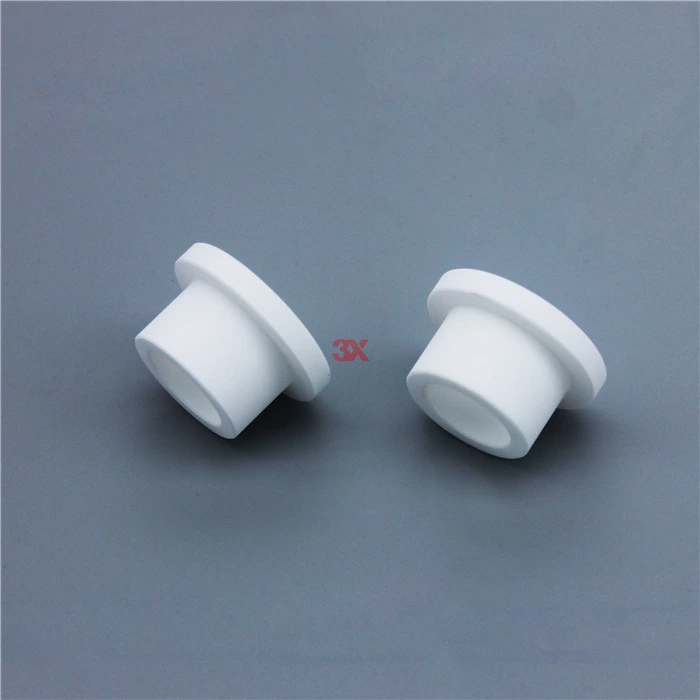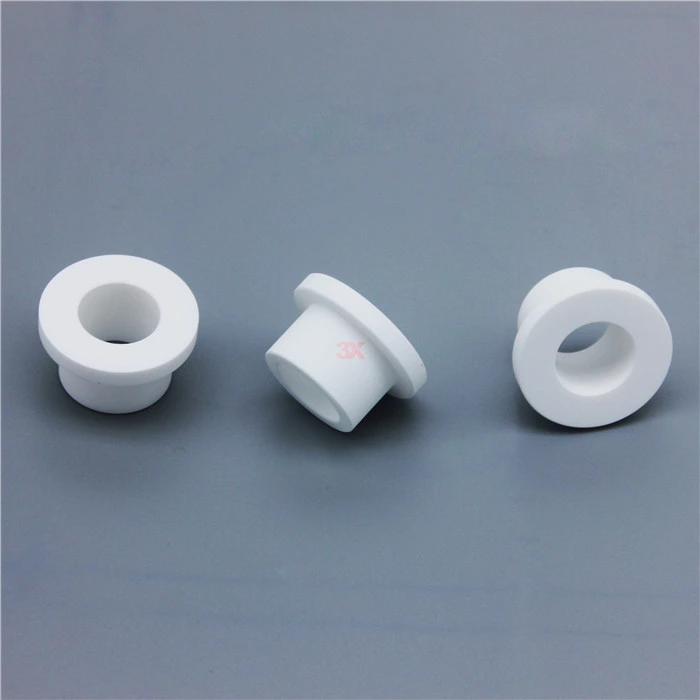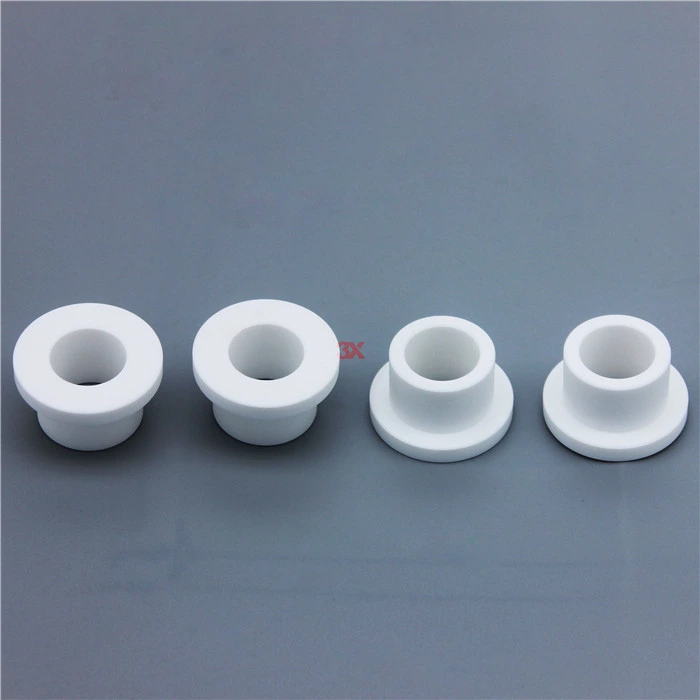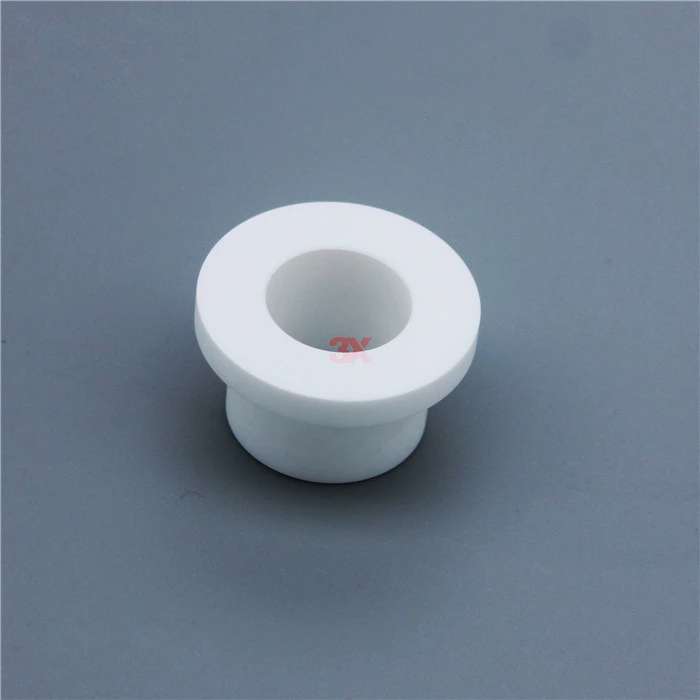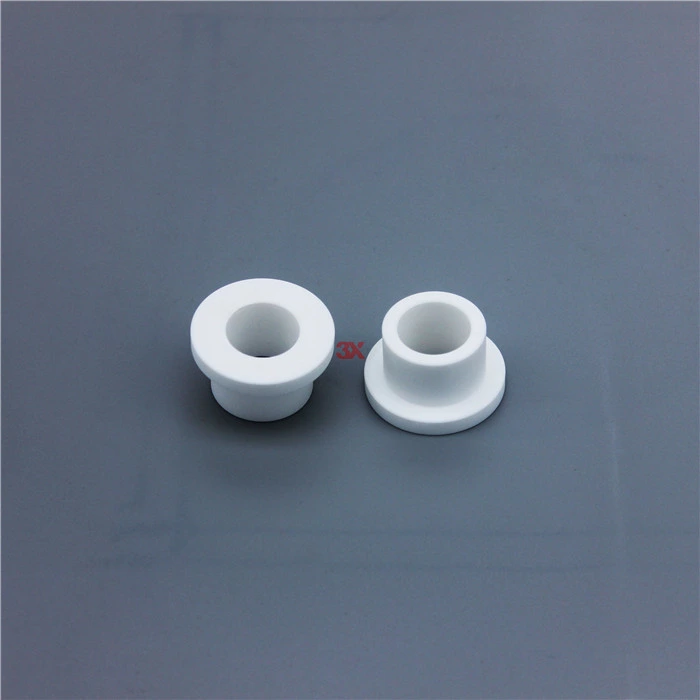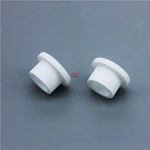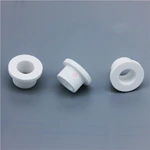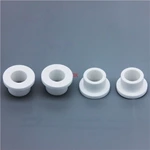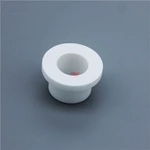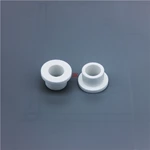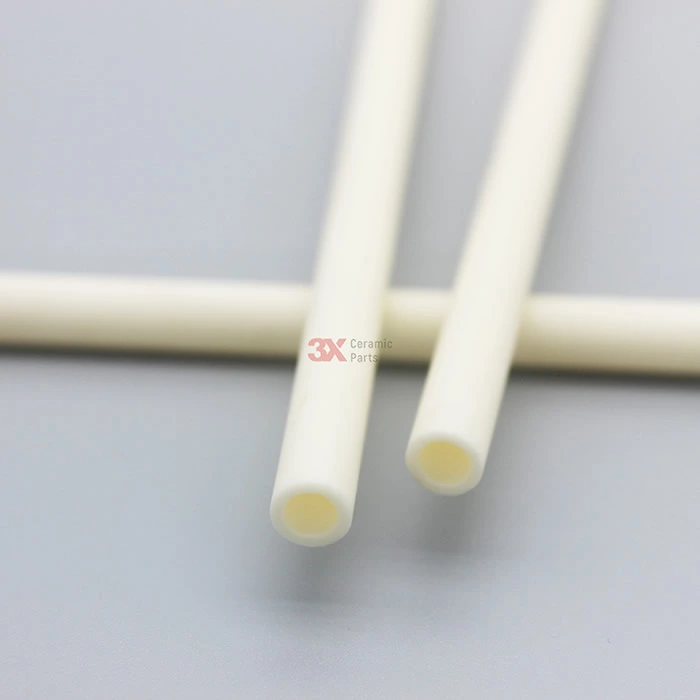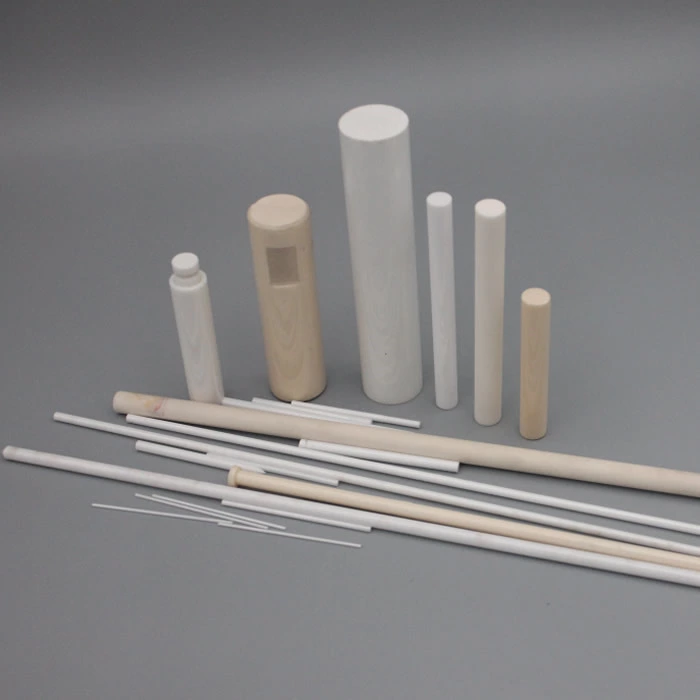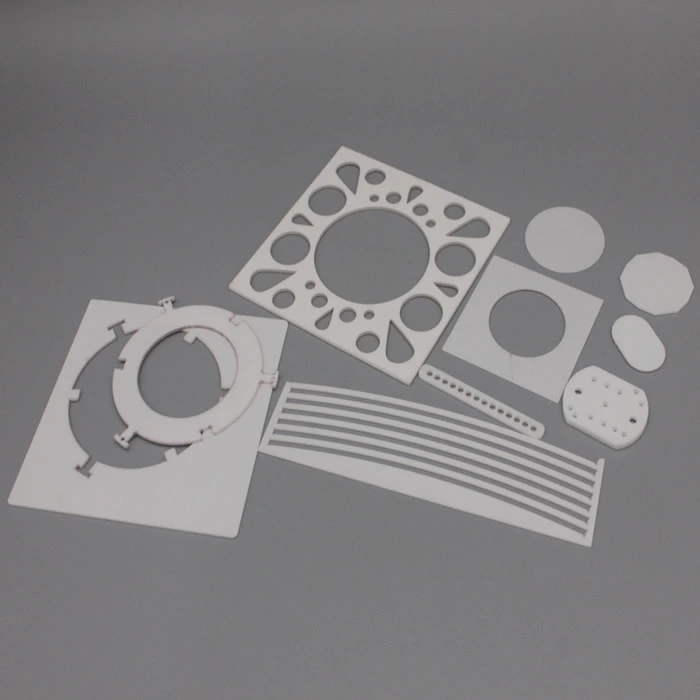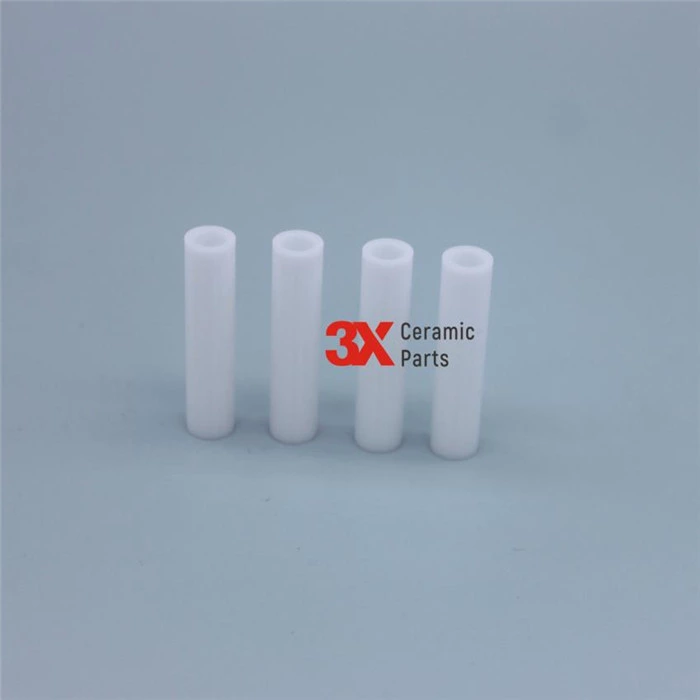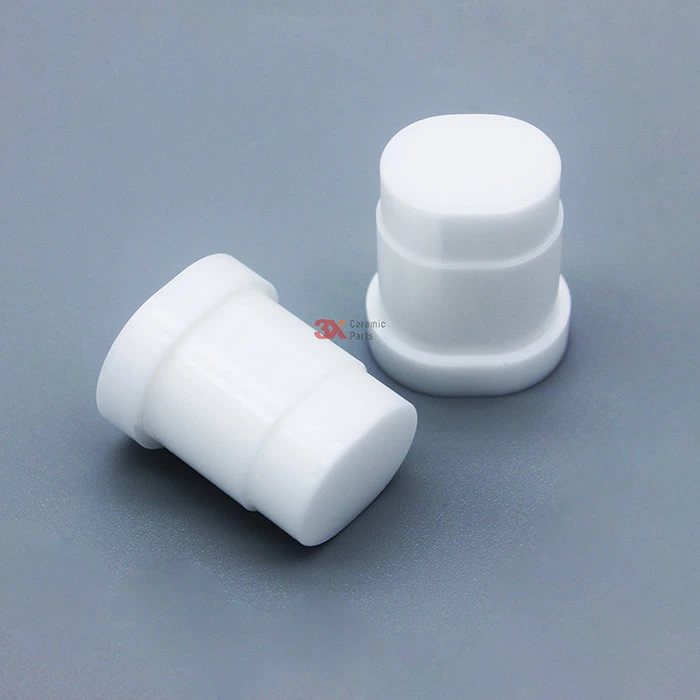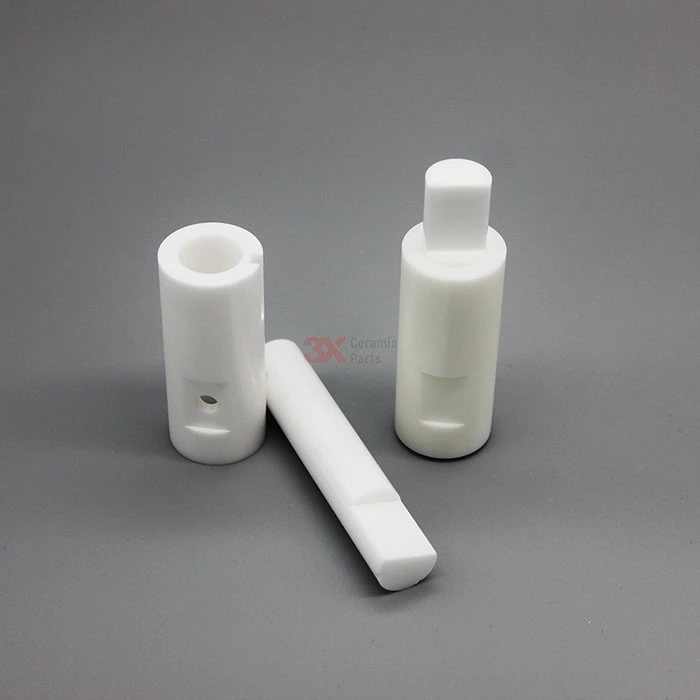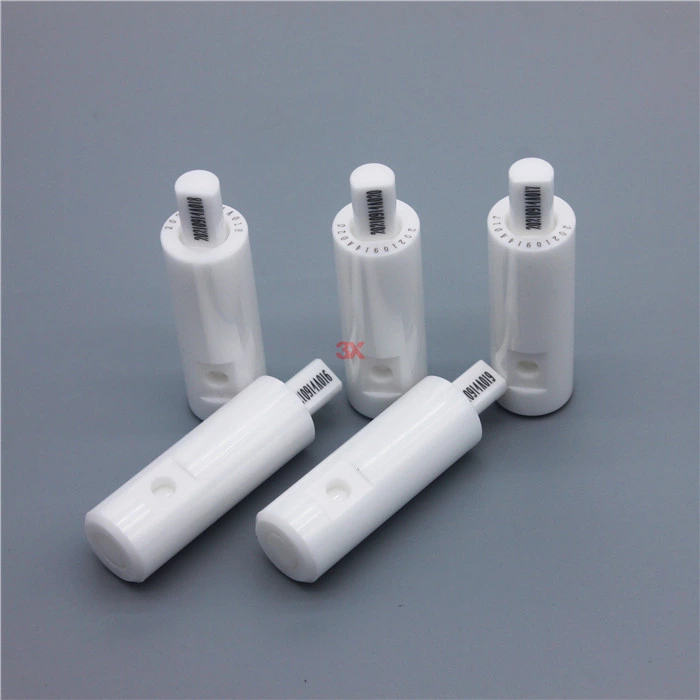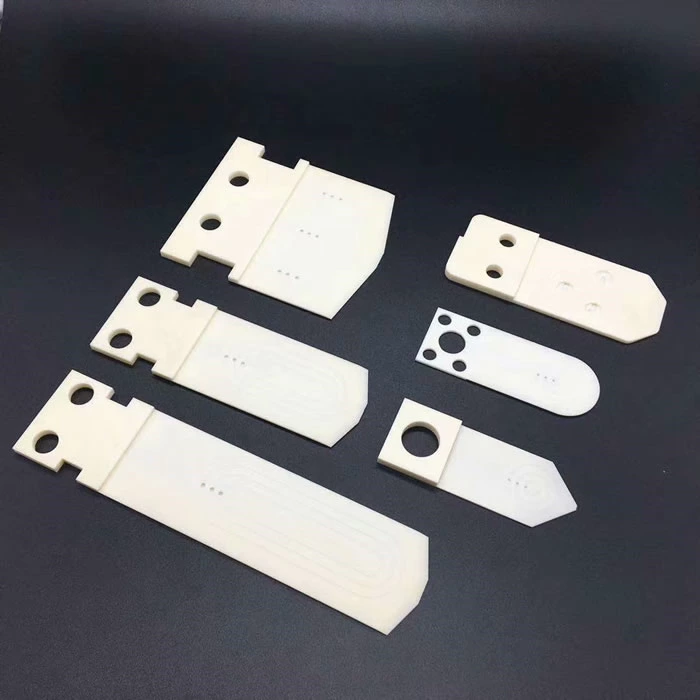Machinable Ceramic Bushing
- Brand Name
- 3X Ceramic Parts
- Material Type
- Machinable glass ceramic
- MOQ
- 5 pcs
- Specification
- custom make
- Hardness
- 4~5 Moh
- Density
- 2.48g/cm3
- Thermal Conductivity
- 1.71W/m.k at 25 ℃
- Compressive Strength
- >508 MPa
- Flexural Strength
- >108MPa
- Shipping Way
- by express
- PACKAGE
- safety packing
Machinable Ceramic Bushing
Macor Machinable Ceramic Bushing is a kind of ceramic material with properties of highly electrical insulating, heat insulating, vacuum tight composite material of glass and ceramics. It is machinable with common tungsten carbide or high speed steel cutting tools by turning, milling, drilling and sawing. Due to the machinability, customers can produce the ceramic parts in their own common workshop or laboratory, mainly for applications as electrical insulators, vacuum components, etc. Different sizes of standard length or customers' parts are available.
Glass ceramics can be machined with conventional metal working machinery. It is not necessary to sinter after machining, because strength, hardness and zero-porosity remain intact during machining. Machinable glass ceramic have the following power feature.
MACOR® can be considered unique as its composition comprises 55% fluorophlogopite mica and 45% borosilicate glass. Corning’s unique production process results in Macor’s microstructure that is a key to its versatile properties.
MACOR® offers a unique combination of properties, unlike any other technical material.It is a white, nonwetting, odorless and non outgassing material that exhibits zero porosity.Extremely machinable, MACOR® offers tight tolerances capabilities,allowing complicated shape design (optimal performances up to +/- 0.013 mm for dimensions, < 0.5 μm for finished surface and up to 0.013 μm for polished surface). MACOR® remains continuously stable at 800 °C, with a maximum peak at 1000 °C under no load, and unlike ductile materials, doesn’t creep or deform. Its coefficient of thermal expansion readily matches most metals and sealing glasses. As an electric insulator, particularly at high temperatures, it is excellent at high voltages and a broad spectrum of frequencies.


